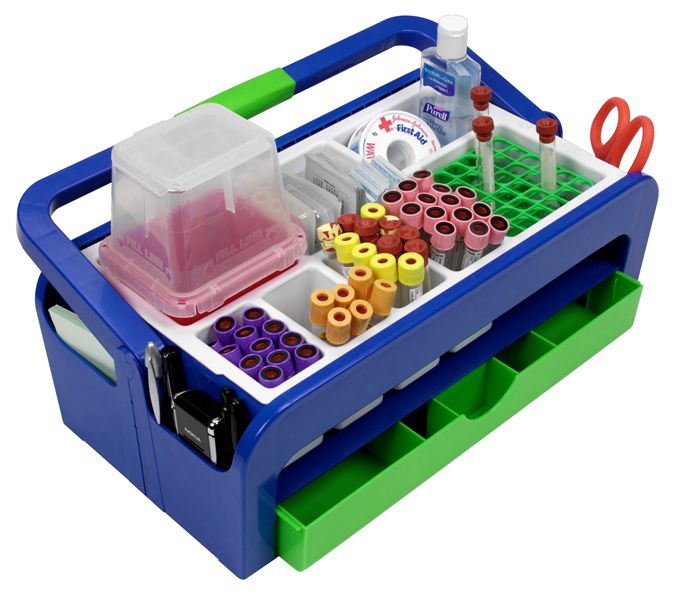Top Locations to Work as a Phlebotomist: Discover Your Career Opportunities
Are you considering a rewarding career as a phlebotomist? Whether your just starting out or looking to relocate for better opportunities, knowing the best locations to work can significantly influence your career growth. Phlebotomists are in high demand across various healthcare, testing, and wellness settings, so exploring those areas can open doors to exciting professional prospects. In this complete guide, we’ll delve into the top locations for phlebotomists, the environments where they thrive, and practical tips to land your dream job.
Why Location Matters for Phlebotomists
Choosing the right location as a phlebotomist can impact your salary, job stability, work habitat, and career advancement. Different regions and settings offer unique opportunities, work cultures, and demands. Understanding where to work can definitely help you align your preferences wiht career growth and personal lifestyle.
Top Geographic Locations to Work as a Phlebotomist
1. Urban Centers and Major Metropolitan Areas
Large cities and metropolitan hubs are hotspots for healthcare services, research facilities, and medical laboratories. These environments frequently enough offer the highest salaries, diverse job opportunities, and advanced training programs.
| City/Region | Opportunities | Salaries | Advantages |
|---|---|---|---|
| New York City, NY | Hospitals, major labs, research institutions | Highest nationwide | diverse work settings, networking opportunities |
| Los Angeles, CA | Hospitals, outpatient clinics, private labs | Competitive | Rich cultural scene, innovation-driven healthcare |
| Chicago, IL | Medical centers, research facilities | Above average | Robust healthcare infrastructure |
| Houston, TX | Hospital networks, research hospitals | High | Growing healthcare industry, new clinics |
2. Suburban and Rural Areas
While metropolitan areas have their appeal,suburban and rural zones frequently enough offer less competitive competition and opportunities for specialized roles. These areas can be ideal for phlebotomists seeking a quieter work environment or aiming for community-focused careers.
| Region | Opportunities | Salaries | Unique Benefits |
|---|---|---|---|
| Suburban Areas (e.g., suburbs of Atlanta, Charlotte) | Clinics, outpatient testing centers | Moderate to good | Work-life balance, community impact |
| Rural Regions (e.g., parts of Montana, Wyoming) | Local clinics, mobile testing units | Variable, sometimes higher due to demand | critically important community engagement |
3. Healthcare and Laboratory Hubs
Specialized centers like research hospitals or dedicated diagnostic laboratories are among the best locations for professional growth as a phlebotomist. Working here often involves advanced procedures and exposure to cutting-edge medical testing technology.
Work Environment and Special settings for Phlebotomists
Hospitals and Medical Centers
Ideal for those who enjoy fast-paced environments and diverse patient populations. Hospital settings often require flexibility and multitasking but offer the chance to gain extensive practical experience.
Physician Office and outpatient clinics
Provides a more personal patient interaction experience. These settings often allow for regular work hours and less stressful workflows.
Diagnostic Laboratories
Focuses on specimen processing and testing.Phlebotomists often work in clean, controlled environments with advanced technology, suitable for those interested in laboratory sciences.
Mobile and Community Testing Units
Allow phlebotomists to reach underserved populations,participate in outreach programs,and enjoy flexible scheduling.These roles are frequently enough found in rural or underserved city areas.
benefits of Working in Top Locations
- Higher average salaries: Large cities and specialized centers tend to pay more.
- Career advancement: More opportunities to specialize or move into leadership roles.
- Networking: Access to prominent healthcare professionals and learning resources.
- Innovative technology exposure: Work with state-of-the-art testing equipment and procedures.
- Community impact: Serve diverse populations and gain meaningful experience.
Practical Tips for Aspiring Phlebotomists Looking for Opportunities
- Research the job market: Use platforms like Indeed, glassdoor, and professional associations to identify top locations.
- Get certified: Obtain certification from recognized organizations like the American Society for Clinical Pathology (ASCP).
- Build your network: Join local healthcare groups or online forums for job leads and advice.
- Consider relocation: Be open to relocating to high-demand areas for better opportunities and higher salaries.
- Update your resume: Highlight your skills,certifications,and any specialized training relevant to the location.
First-Hand Experiences from Professional Phlebotomists
Case Study 1: Working in a Major city
Jessica, a phlebotomist in New York City, shares her experience working in a large hospital. “The variety of cases keeps me engaged, and I’ve learned so much about different medical procedures. The pay and benefits are also excellent.”
Case Study 2: Serving Rural Communities
Michael, a community outreach phlebotomist in Montana, notes, “Working in rural areas allows me to connect deeply with the community and see the direct impact of my work. The work-life balance is fantastic, and I enjoy the quieter pace.”
Conclusion
Choosing the right location to work as a phlebotomist can significantly influence your career trajectory, earning potential, and job satisfaction. From bustling metropolitan hospitals to close-knit rural clinics, there are abundant opportunities tailored to your professional goals and lifestyle preferences. By researching desirable areas,acquiring the right certifications,and staying flexible,you can unlock a fulfilling and prosperous career in phlebotomy. Start exploring your options today and take the first step towards a rewarding healthcare career!
